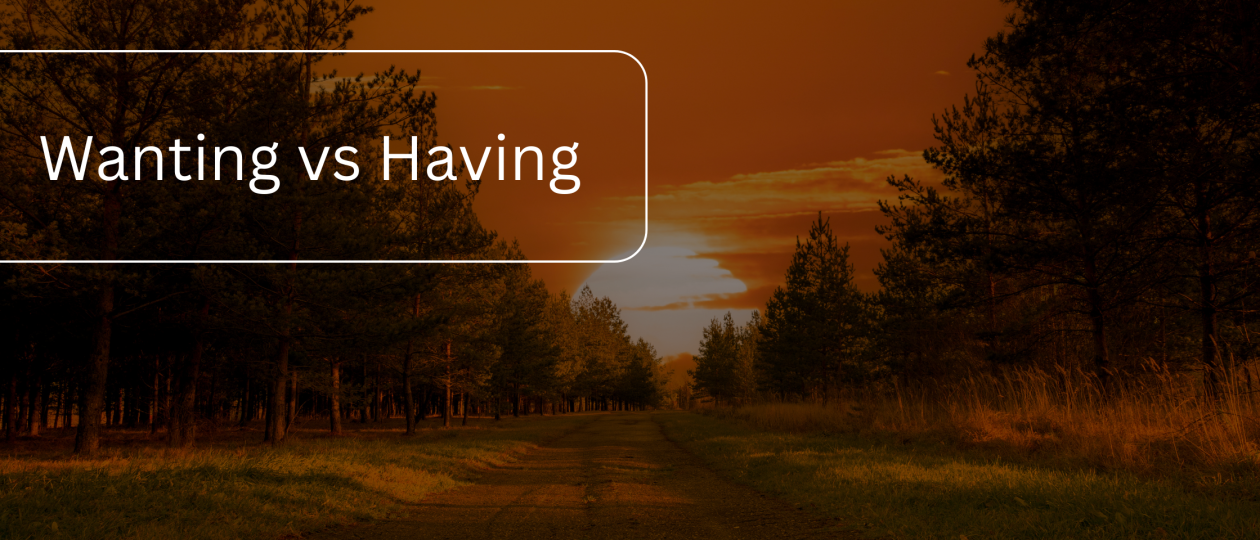Wanting vs Having
Today, I’d like to follow through on our discussion from last week, on the concept of balance and how it ultimately depends on an unseen foundation of love and grace. In short, it is not enough to express love and prioritize relationships “moderately.” Rather, it is a radical commitment to love in the present moment which provides the context by which everything else can be balanced. But this is the sort of thing that is easy to accept in theory without any real concept of what it actually looks like. So today, we are going to explore the nature of the context we’ve created and examine the result of a life balance based on love.
We should start by examining the qualities of love. Of course, we can start with the famous passage in 1 Corinthians: “Love is patient, love is kind. It does not envy, it does not boast, it is not proud. It does not dishonor others, it is not self-seeking, it is not easily angered, it keeps no record of wrongs. Love does not delight in evil but rejoices with the truth. It always protects, always trusts, always hopes, always perseveres. Love never fails.” I think it’s important to note that the passage doesn’t only define love by the negative. It doesn’t merely abstain from troubling behaviors, love does things—and by looking at what it does (protects, trusts, hopes, treats kindly, etc.) it is clear that love is people-oriented and relationship-oriented. This is why I always say that love lives in the present moment. Because while learning from the past and planning for the future are important skills, they should always be in service to relationships, and the only time in which we can relate to others is right now.
There’s an old expression which goes that if you want to be content, you should try wanting what you have. Sound advice, but it’s not easy to understand what that really means. Physiologically, when a person takes possession of something, meaning a strong desire or feeling of need for it, it places them into clinical stress until those feelings are resolved—by either gaining that thing or otherwise dealing with the feeling of need. The trouble, of course, is that we usually go straight from gaining what we want to wanting something else. But from a natural perspective, it only makes sense that we should concentrate on the next thing we don’t have in order to move forward, so it’s difficult to visualize what “wanting what you have” actually looks like, isn’t it?
Except that I think we already have, in the paragraph before last. Think about the fundamental nature of wanting vs having, and you’re thinking of the difference between living for an imagined future or living for the present moment as it currently exists. From this, we can start to see how these two concepts align perfectly. By prioritizing people and selfless relationships, we become focused on the present—which naturally means that we are also focused on the lives we have now, rather than the one we think we want or need.
What I get from all this is that the idea of wanting what you have is poor phrasing. It’s not about transferring your desire onto things or circumstances which you already possess. It’s a complete refocusing, onto a paradigm that I believe can virtually guarantee long-term happiness if you follow it consistently. Admittedly, maintaining that focus isn’t always so easy. But next week, we’ll talk more about that.
Have a blessed, wonderful day!
Dr. Alex Loyd




Add a Comment